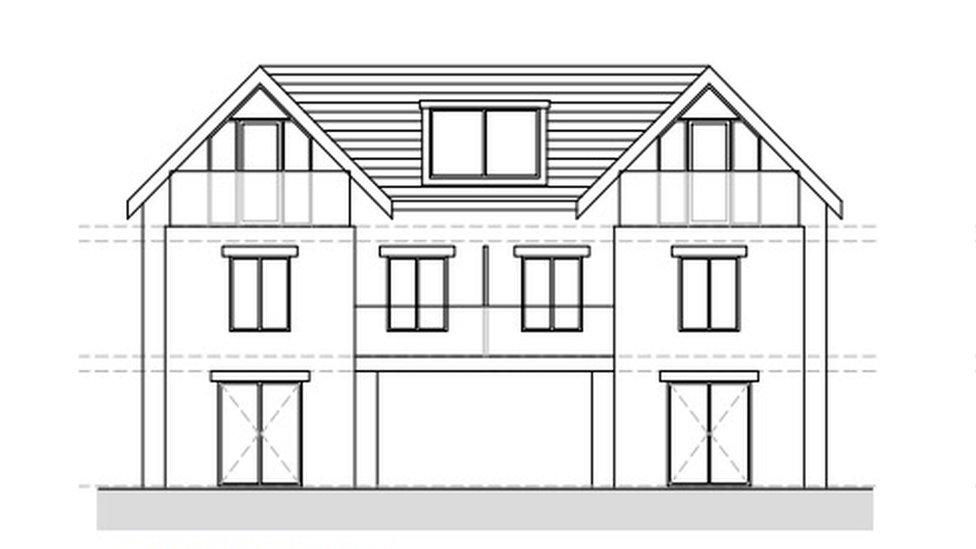Scarborough housing plan approved despite 60 objections
- Published

The bungalow will be demolished and rpelaced with five apartments
A housing development in Scarborough which attracted more than 60 objections from residents has been approved.
A developer plans to demolish a bungalow and build five apartments at 40 Scalby Mills Road, near the Sea Life Centre.
Although the plans had been amended 67 residents objected over the style of the building and raised concerns about traffic and environmental impacts.
North Yorkshire Council said there were no concerns to "justify refusal".
The two-storey building will consist of four one-bedroom flats on the ground and first floors, with a two-bedroom flat in the attic.
The planning authority said that the development was "not entirely acceptable" when originally submitted but noted that positive amendments had been made to the scheme.
According to the Local Democracy Reporting Service, many of the concerns expressed by residents related to fears about road safety and increased traffic.
Planning officers stated the apartments would generate more traffic than the existing property but the access arrangements would be improved.
They also stated that loss of light to neighbouring gardens would "only be for short periods of the day".

Planners ruled the new building would not be "out of place"
Several members of the public also said they were worried about the potential ecological harm caused by the development.
However, amphibian and bat reports indicated the proposal would "not impact the habitat of protected species" and the council's ecology officer raised no objections.
A council report concluded: "The street is an eclectic mix of dwelling types of all ages and architectural designs… the proposal will not appear out of place, being sandwiched between two-storey houses to each side."
According to the planning authority, the development raised "no concerns that would justify a refusal of permission".

Follow BBC Yorkshire on Facebook, external, X (formerly Twitter), external and Instagram, external. Send your story ideas to yorkslincs.news@bbc.co.uk, external.